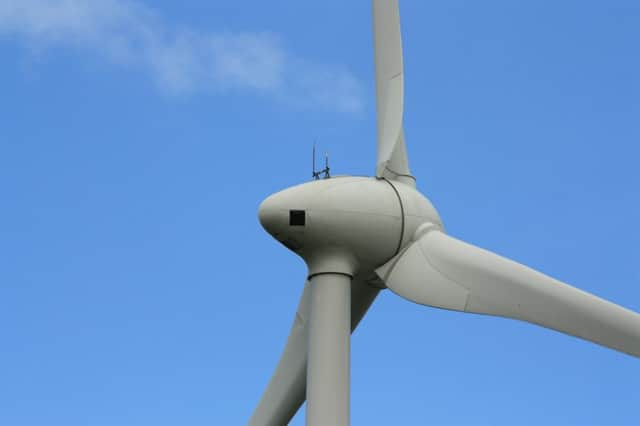Onshore wind contributes half a billion pounds to Yorkshire economy, says report


RenewableUK, the wind industry’s trade body, said Yorkshire was a “key player” in the sector, with enough turbines to power 200,000 homes a year.
Of the £540m generated over the lifetime of the existing capacity, RenewableUK said over £20 million goes directly into the local community in benefit payments.
Advertisement
Hide AdAdvertisement
Hide AdBut campaigners say the economic benefits are not worth the “devastating” effect towering wind turbines have on the Yorkshire landscape.
East Riding and South Yorkshire are the largest areas in the region for wind resource, and together produce 82 per cent of the region’s wind energy. The report said both areas benefit in employment, with jobs throughout the supply chain, from manufacturers to transport specialists, and even specialist wind farm solicitors and renewable energy lawyers.
Chief executive of RenewableUK Maria McCaffery said: “The county’s dynamic workforce is involved in every part of the sector, from manufacturing small turbines in Brighouse to making gearboxes for offshore turbines in Huddersfield. We have component manufacturers in Leeds and wind farm maintenance experts in Northallerton.
“Yorkshire is in the vanguard of green growth, creating new jobs in clean energy for this generation and the next.”
Advertisement
Hide AdAdvertisement
Hide AdEast Yorkshire has the highest density of turbines in the country and campaigners last year marched on East Riding Council to say “enough is enough”. According to figures last year, the area had 223 turbines over 160ft high built, approved or pending consideration.
Campaigners from seven villages in the Yorkshire Wolds have joined together to fight plans by EDF Energy Renewable for ten turbines at Highwood, Driffield.
Ged Hitchin, chairman of the Stop Wolds Wind Farms action group, said: “Energy companies are steadily industrialising the Wolds. These ten turbines, twice the height of Beverley Minster, will dominate the landscape. If you drive up the A614 from Howden you are confronted with hundreds of turbines that are completely ruining the Wolds. We want to protect the Wolds not just for us, but for future generations.”
Farmer Paul Stephens’ four-year campaign to the erection of ten 126m turbines on land bordering his farm at West Heslerton, Ryedale, ended in a High Court victory in December when a judge threw out a developer’s appeal over a decision by the Secretary of State to reject the plans.
Advertisement
Hide AdAdvertisement
Hide AdBoth that site, and that in Highwood, are in areas designated to be of high landscape value.
He said: “As a farmer, I consider myself to be a custodian of the countryside. Companies stand to make vast amount of money from wind turbines, but to me, the benefits do not outweigh the harm to the environment. It ruins the landscape.”
South Yorkshire produced almost a third of the wind capacity in Yorkshire and the Humber - 125.5megawatts a year.
Andy Tickle, director of the Campaign to Protect Rural England (CPRE) in South Yorkshire, said while it had a “balanced approach” to onshore wind, taking each case on a location by location basis, it would like to see a greater investment in communities, and more community-owned schemes where people were able to see real benefits through a reduction in energy costs.
Advertisement
Hide AdAdvertisement
Hide AdThis, he said, would create greater acceptance of “what are rather large objects, that do divide communities.”
The CLA has been lobbying to influence the UK’s renewable energy strategy since 1999.
CLA North regional director Dorothy Fairburn said it recognised the benefits of onshore wind to the region’s rural economy.
RenewableUK said the economic benefits of the industry were “clear to see” and hit back at pledges by the Conservatives and Ukip to stop new onshore wind farms.
Advertisement
Hide AdAdvertisement
Hide AdMs McCaffery added: “The industry is helping to propel Britain to a brighter, cleaner and more secure future - onshore wind is already the lowest cost of all low carbon options and is set to become the least cost form of all electricity within the next five years.
“Despite these facts, onshore wind projects are under threat from misguided Tory and Ukip policies aimed at stifling their development, blatantly disregarding rational economic evidence and consistently high levels of public support.”
The Conservatives have said they would end new public subsidies for onshore wind farms and change the law so local people have the final say on them, as they “often fail to win public support and are unable by themselves to provide the firm capacity that a stable energy system requires”.
Ukip has also said it would end subsidies for wind farms, saying they had “blighted landscapes and put money into the pockets of wealthy landowners and investors, while pushing up bills for the rest of us”.